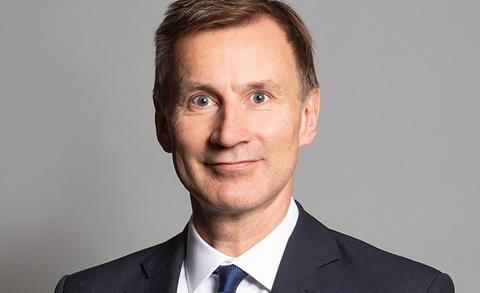The Chancellor presented his 2023 Autumn Statement on Wednesday 22nd November, reporting policies on tax relief, the living wage and a new Climate Change Agreement scheme.

It was announced that:
- The full expensing capital allowance would be made permanent after being temporarily introduced in the 2023 Spring Budget
- The rates of national insurance paid by employees and the self-employed will be reduced as of 6th January 2024
- The living wage will increase from £10.42 to £11.44 as of April 2024
- Current 75% business rates would be extended for a year and the small business rates multiplier would be frozen for business in 2024/25
- The duration of tax reliefs will be extended
- A new Climate Change Agreement scheme will be introduced, providing £300 million in tax relief to businesses meeting energy efficiency targets.
President of the National Farmers' Union (NFU) Minette Batters said: “While some of the announcements such as cuts to National Insurance Contributions, extensions to current business rate reliefs and new 5G innovation regions have the potential to benefit some farm businesses, the majority look set to miss out on some of the Chancellor’s headline measures.
“For instance, while we acknowledge the announcement of full expensing, most farm businesses are ineligible as the vast majority are unincorporated businesses. Similarly, while it’s positive to see streamlining of the planning system, especially on grid connections, again this appears limited to large scale projects.
“Farm businesses form the bedrock of the UK’s largest manufacturing sector – food and drink. To make a real difference, the Chancellor’s focus must be on targeted investment incentives to stabilise, grow and decarbonise our sector. This is what the NFU has been calling for in our submissions to Treasury for many years and the time to act is now.”
Tom Southall, Cold Chain Federation (CCF) executive director, said: “The announcement in the Autumn Statement that Government is taking forward a new six-year Climate Change Agreement scheme is very welcome news for the cold chain. The cold storage Climate Change Agreement scheme has played a significant role in supporting energy efficiency progress in our industry for more than a decade, and the incentives the scheme offers have become increasingly important as operators need to invest in more sophisticated measures to continue making strong energy efficiency improvements.
"The Cold Chain Federation will be responding to the consultation on the new scheme and we look forward to working with Government to ensure that the details of the new scheme support and incentivise cold storage operators to maintain their strong momentum on energy efficiency.”
Potential impact on consumers "unclear"
Logistics UK chief executive David Wells said: "The decision to make the current full expensing allowance for capital permanent is a welcome step that will support logistics businesses with long-term planning and investment. Our members are keen to identify if this change will include the cost of acquiring leased or hired vehicles, as well as those purchased outright.
"In addition, detail is needed to identify whether the move will cover the cost of installing the infrastructure required to help the industry decarbonise, as our research shows this could amount to an outlay of up to £1 million per site – a prohibitive charge which will hinder the industry’s shift to net zero."
News that the planning system is to be streamlined has also been welcomed by the business group, which has been pressing for changes to be made to enable logistics businesses to plan more efficiently for some time.
Wells concluded: "While there are indications that the statement could boost economic activity, our members are concerned about how Freeports and Investment Zones could work for them. In addition, businesses still need clarity on the support Government will be providing for the transition to a net-zero economy, and we will be working closely with them in the coming weeks to ensure the best possible outcomes to keep the UK trading, both domestically and internationally.”
James Walton, IGD chief economist, said: "The Autumn Statement includes special policy measures to support investment in selected, strategically important industries. These are listed as motor vehicles, aerospace and life sciences.
"Food production, processing and distribution are not mentioned, despite their huge economic value - food is the biggest manufacturing sector and is, arguably, more important to shopper welfare."
IGD's head of economics, Michael Freedman, demonstrated that the increase in the National living wage would be welcomed by consumers, and that the 2% reduction in national insurance would benefit approximately 27 million people after the Christmas period. He said that the overall impact on consumers was "unclear", with many still "feeling scarred by high food price inflation, relatively high interest rates and the highest tax burden for 70 years".
This story was originally published on a previous version of the Meat Management website and so there may be some missing images and formatting issues.















